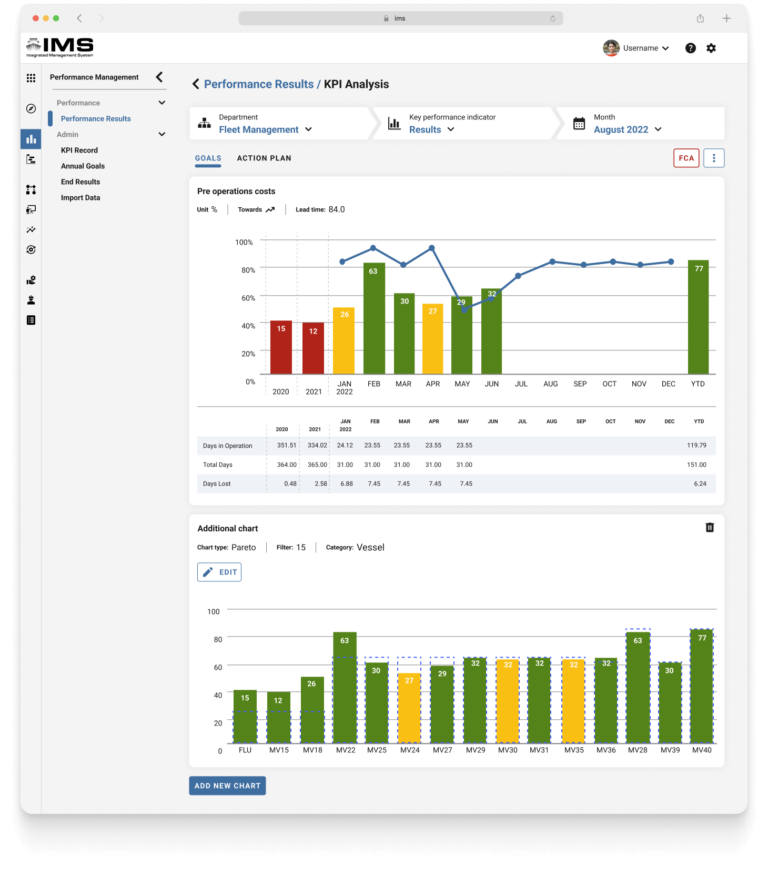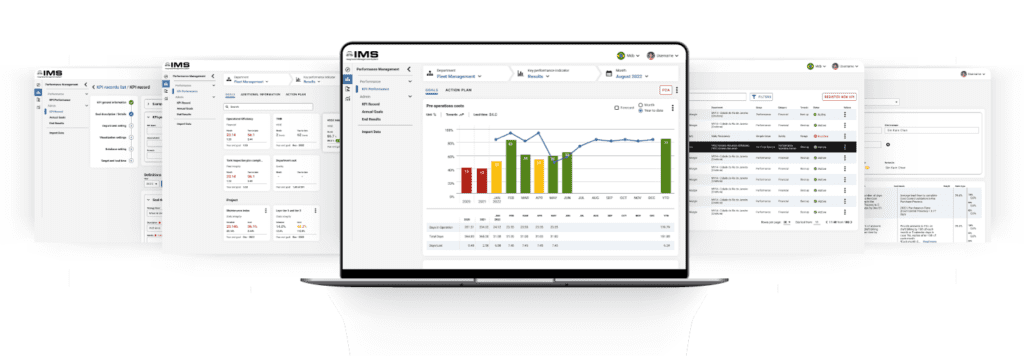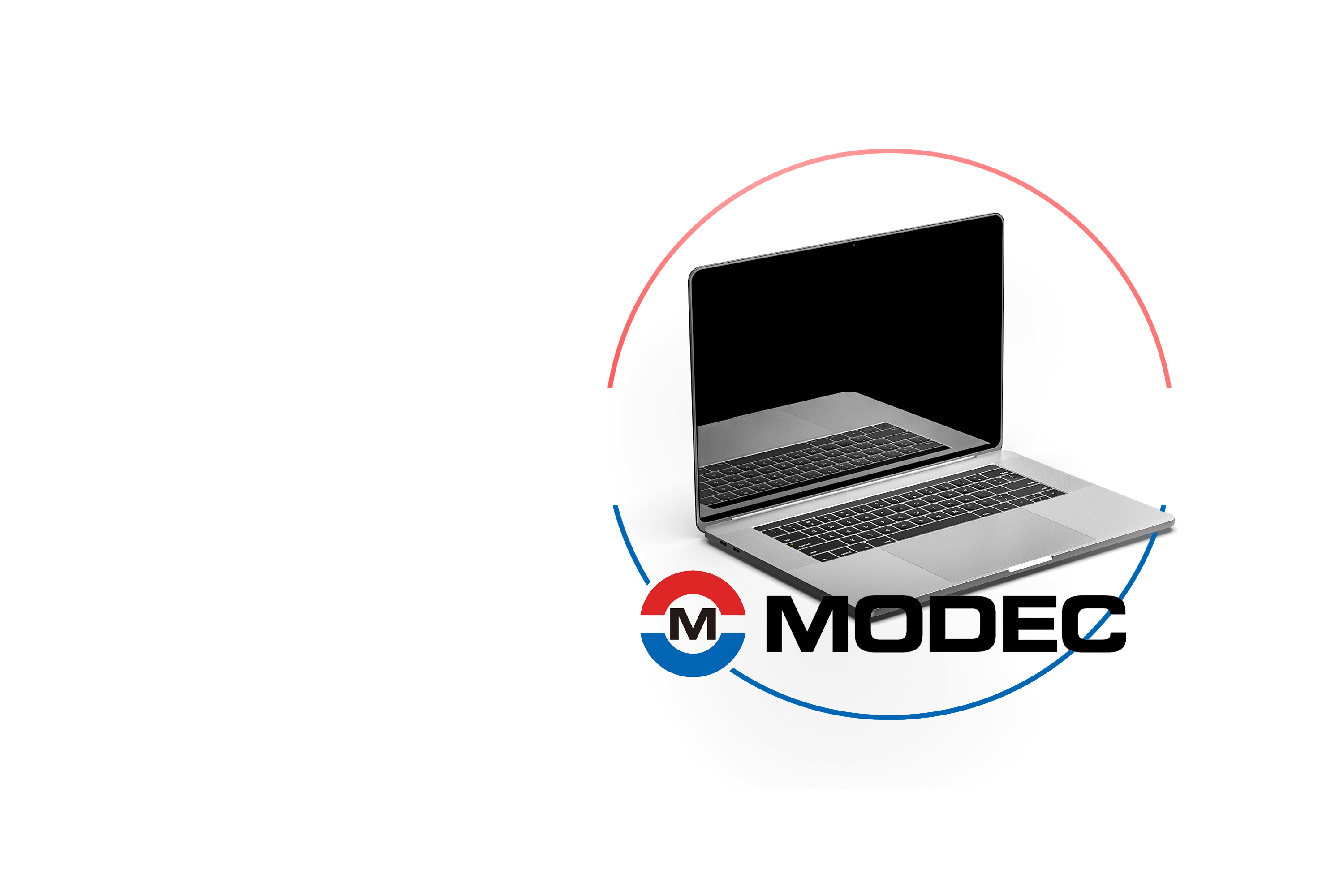Modec International 🌏
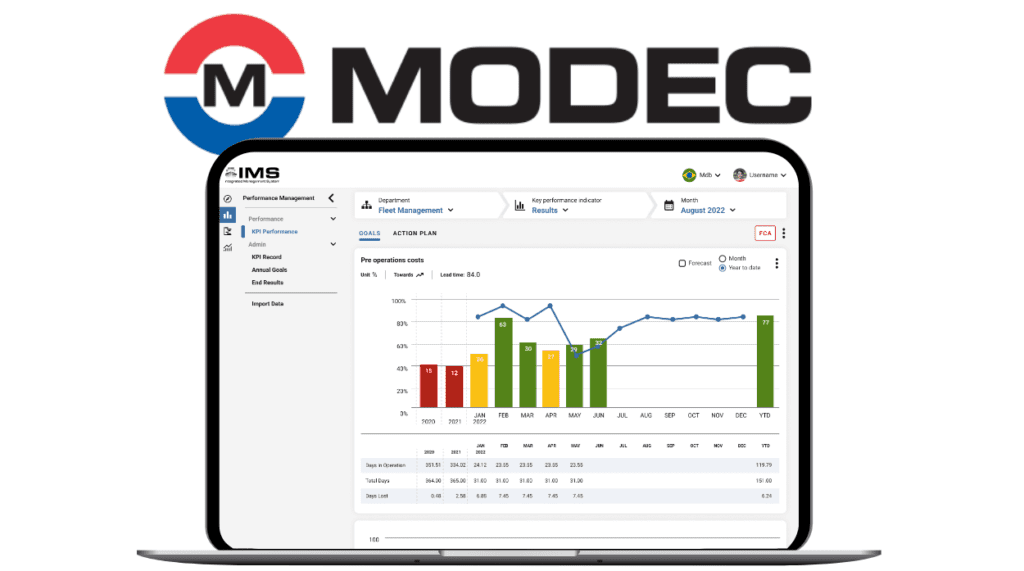
Modec has a number of in-house services and platforms to serve its thousands of employees around the world, and many of the systems used were made by third-party companies, which caused a lot of problems. To solve this problem, Modec created a development and technology sector that I was invited to be a part of.
Role:
Product Design.
Platforms:
Web
01. scope
Challenges faced
It was necessary to renew the company’s digital platforms. Each platform was made by a partner company, and these platforms did not connect with each other and had many different problems, such as slowness, usability, among others. Our first job was on MODEC’s KPI control system “Performance Management”.
RESULTS ACHIVED
the Release
Before and after
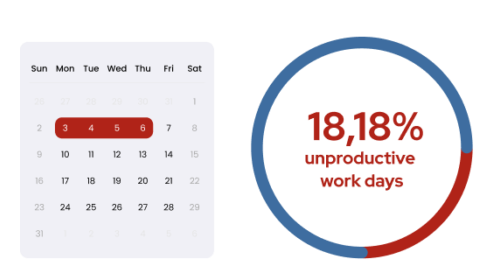
Unproductive work days
Internal analysis found that teams were spending several days of work per month on tasks prime for automation and on issues leading to extensive rework. This amounted to an average of 4 days per employee, per month, spent on inefficient processes, creating a significant drain on resources.
Driving Efficiency and Savings
The new design solution streamlined these core workflows and automated key tasks. This optimization reclaimed thousands of collective work-hours monthly, translating directly into a multi-million dollar (annualized) reduction in operational costs and boosting overall team productivity.
Increased Adoption Rates Across International Branches
With the launch and resolution of various issues, we successfully expanded system usage.

Previously, only 6 countries were utilizing the legacy system.
Following our product launch, adoption expanded to encompass 11 countries.
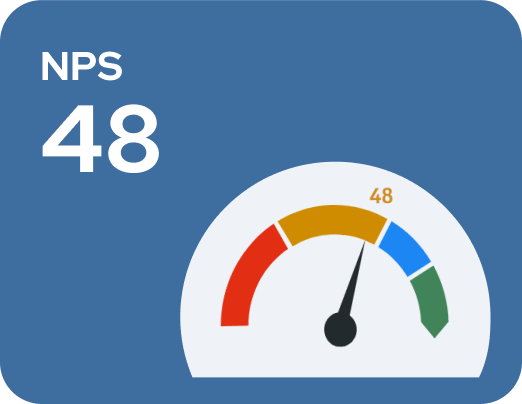
NPS Results
Following the launch, we distributed a Hotjar survey via email to all users. We achieved a score of 48, indicating ongoing refinement but a commendable outcome for a launch. In detail, the results comprised 26 detractors, 33 neutrals, and 102 promoters.
HOW I ACHIEVED THESE RESULTS
02. PROBLEM
Understanding the context
As is mapping
The first step to understand where we are going was to understand where we are. So, I scheduled 2 meetings with users who knew a lot about the system to explain how the current tool works.
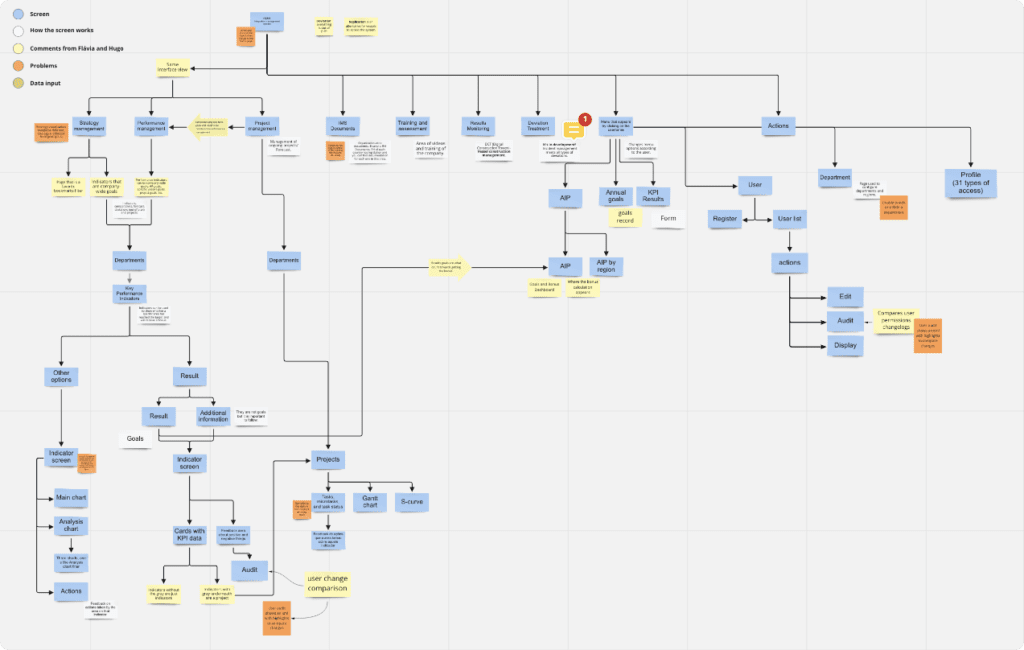
User interview
After understanding the current platform and a little bit of the process, I organized the interview work, defining structures and scripts in the survey to understand the users’ problems and the company’s process. The product was used from intern to global director, each person with a purpose and at a different stage of the process.
36 respondents. The product was used from intern to global head.
Separate interview script was used to understand the tasks of each employee, stage of the process that works, and the pains.
Users were interviewed in 6 different countries: Brazil, Mexico, Singapore, India, Ghana, and Japan.
I had help from a junior product designer in the interviews and transcripts.
Service blue print
Part of the step of understanding the context was also necessary to map the process. Talking to several people, we were able to connect the part of the process that each one worked and create a service blueprint of the entire process.

Pain points
In these same interviews, we identified the problems that each one faced in their work using the current platform.
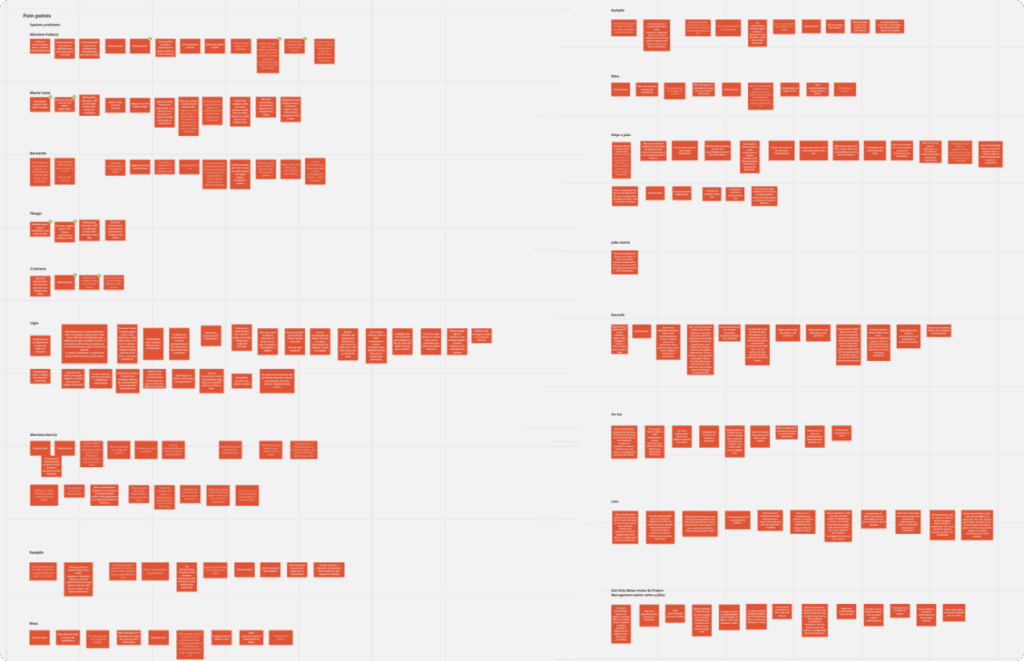
Relate the problems
After having the entire list of pain points, I started to list similar problems in categories and defined the size of each ball by the number of citations. I also created a link between the ball and the problem group for times when I needed to get more detailed information about the problem.
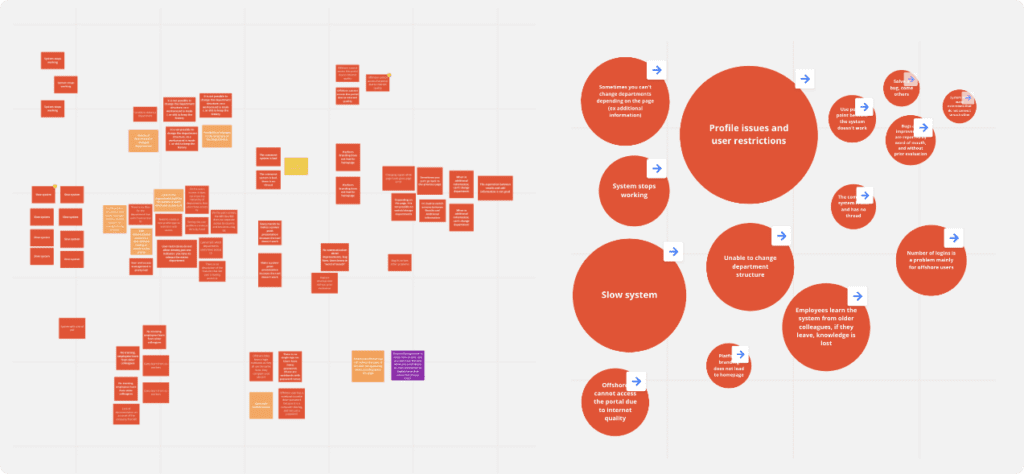
03. CONNECT THE DOTS
Linking the researchers
Alinhando as dores aos processo
I’ve combined each group of problems at the stage of the process where they occur, so it’s easier to understand which part of the process gives the most problems.

Personas
As the process is very large, and with many people working in stages of the entire process, it was also interesting to know when each employee was in the process. So, I drew some personas based on the interviews we did and combined it with the service blueprint to make the stage of participation of each user clearer.

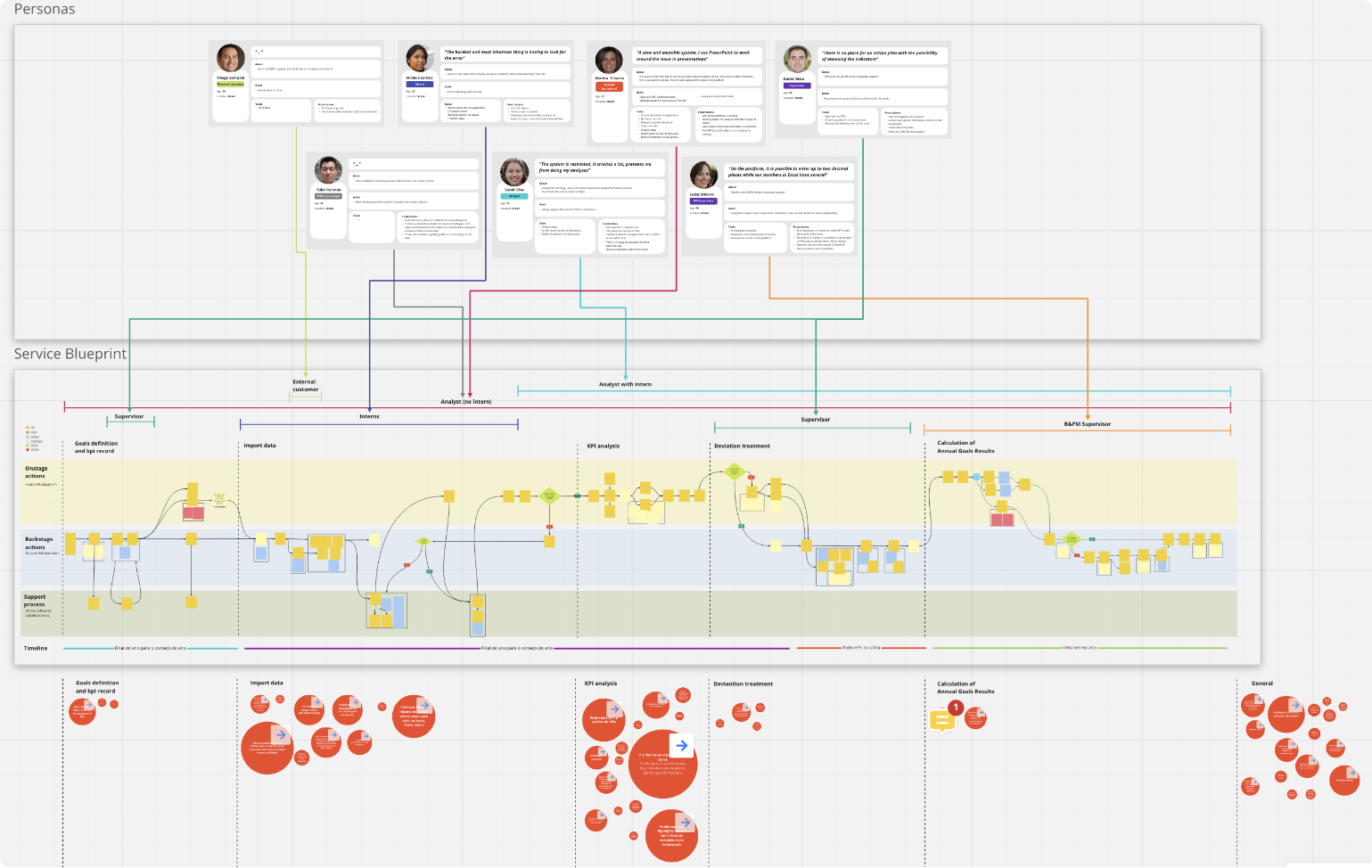
04. IDEATION
Deciding what to build
Sitemap
After I had a complete understanding of the company’s process and the pain points, I moved on to the ideation part where I started with the sitemap that showed the changes in navigation and structure of the new platform.
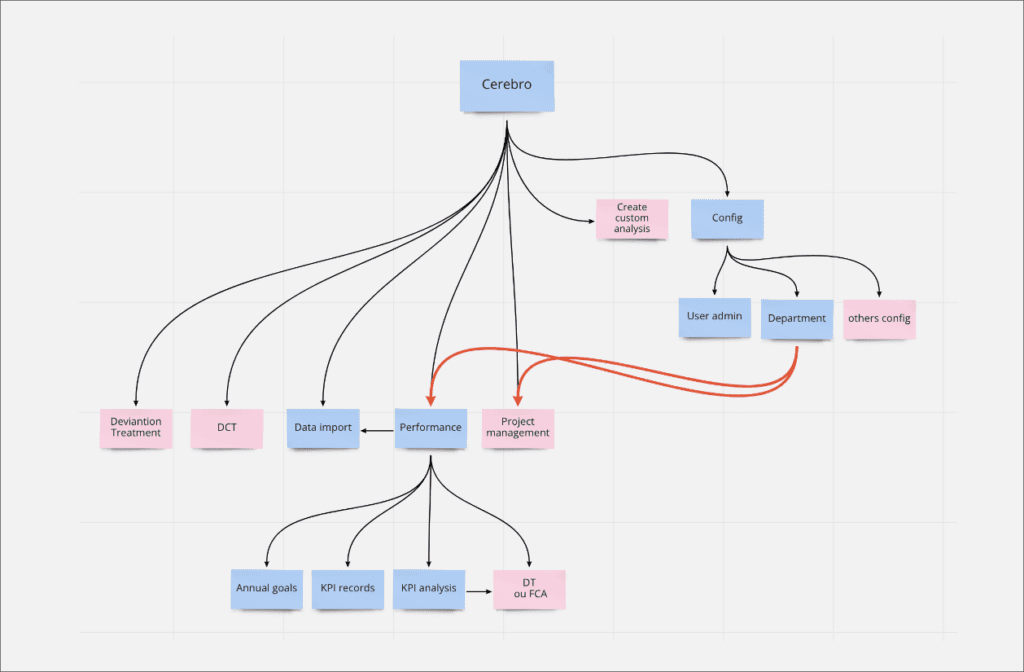
Wireframe
I started with a very basic wireframe just to define the main flows and understand if users would agree with these changes. It wasn’t difficult to get their acceptance since, on the current platform, many navigation flows don’t make sense.
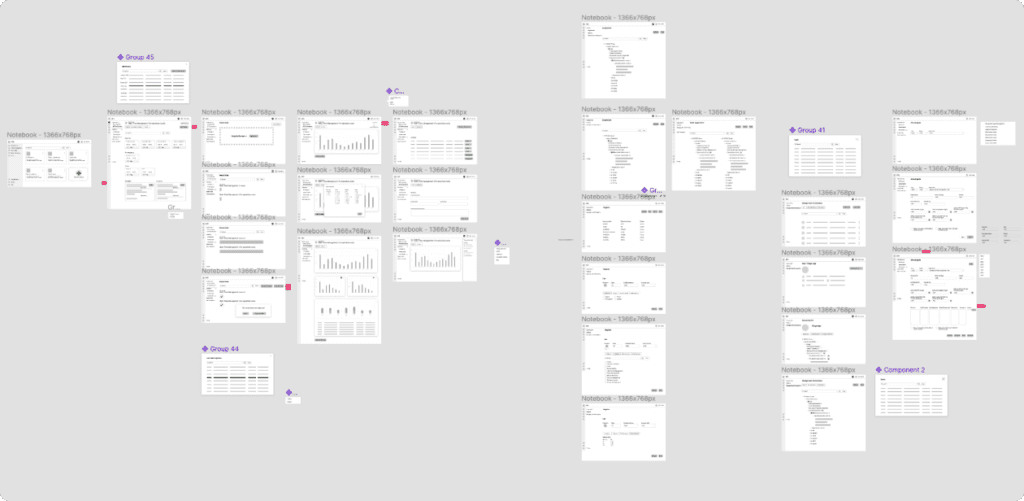
05. creation
Keeping Consistency
Design system
Leading a landmark project, I championed the implementation of a comprehensive design system. This initiative unified developers, designers, and the organization, ensuring alignment across interface decisions, accessibility, and culture. By fostering cohesion and consistency, we optimized user experiences and fortified the brand’s identity. This showcases my dedication to advancing UX practices and driving impactful outcomes.
During this phase, I organized the Figma pages using a Kanban board so that everyone could easily see the status of each page in terms of “Work in Progress” (WIP), “Review”, “Done”, and “Ideation”.
05. DELIVERY
Value to the user
User interface
After gathering a lot of information through research and ideation, I began designing the interface while continuously referring back to the research to ensure that I was addressing the identified issues.
During this phase, I organized the Figma pages using a Kanban board so that everyone could easily see the status of each page in terms of “Work in Progress” (WIP), “Review”, “Done”, and “Ideation”.
IMPROVIMENTS
Login

KPI Record
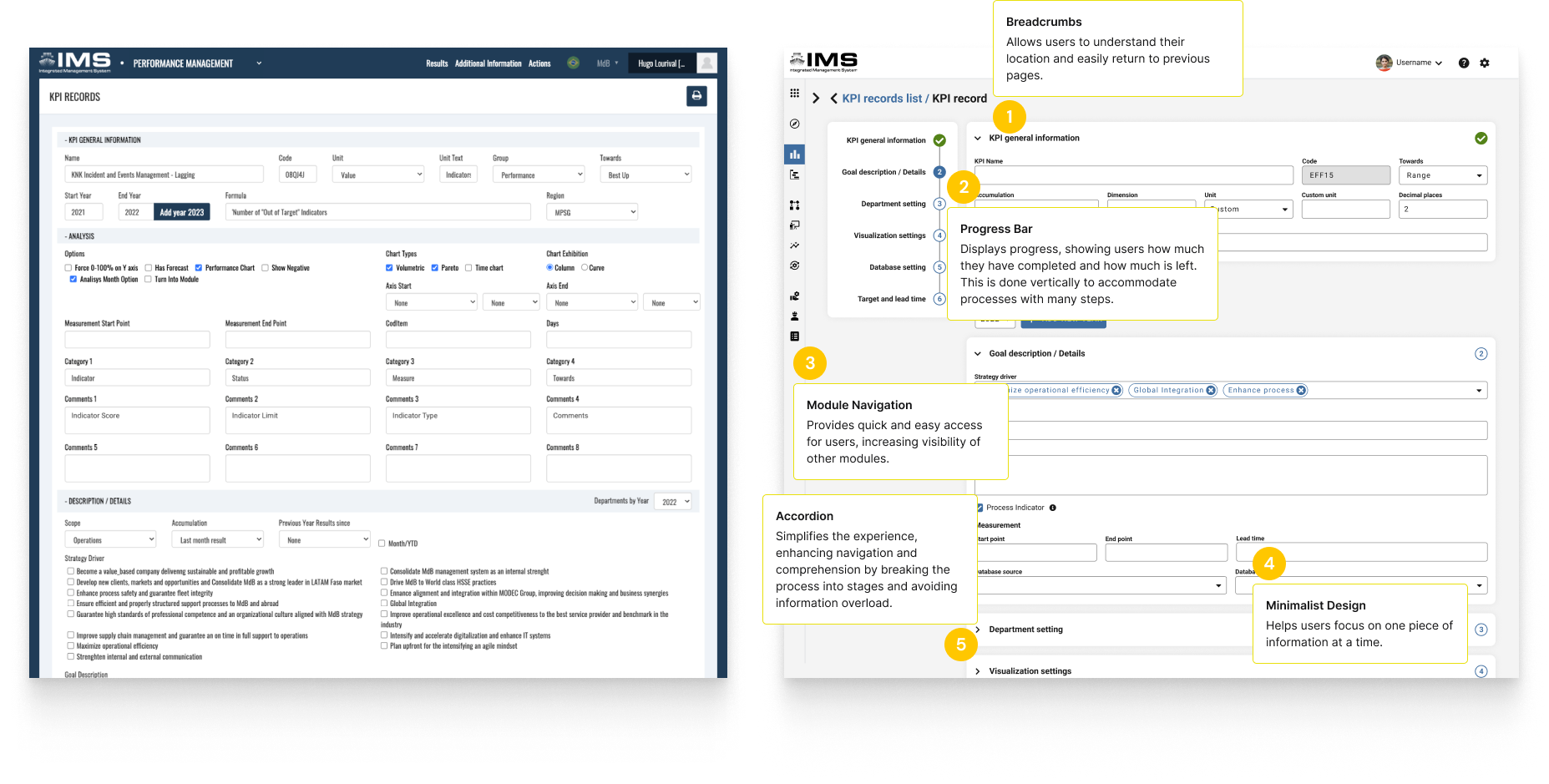
KPI List
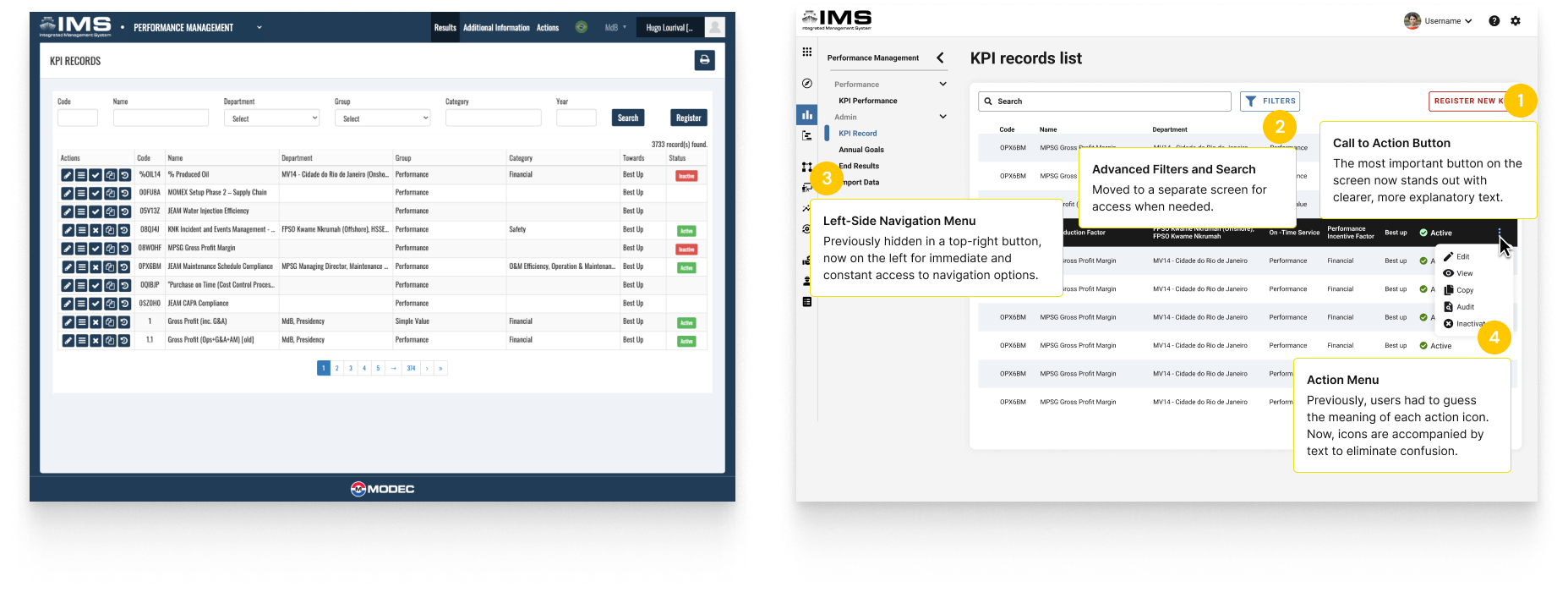
Import Data
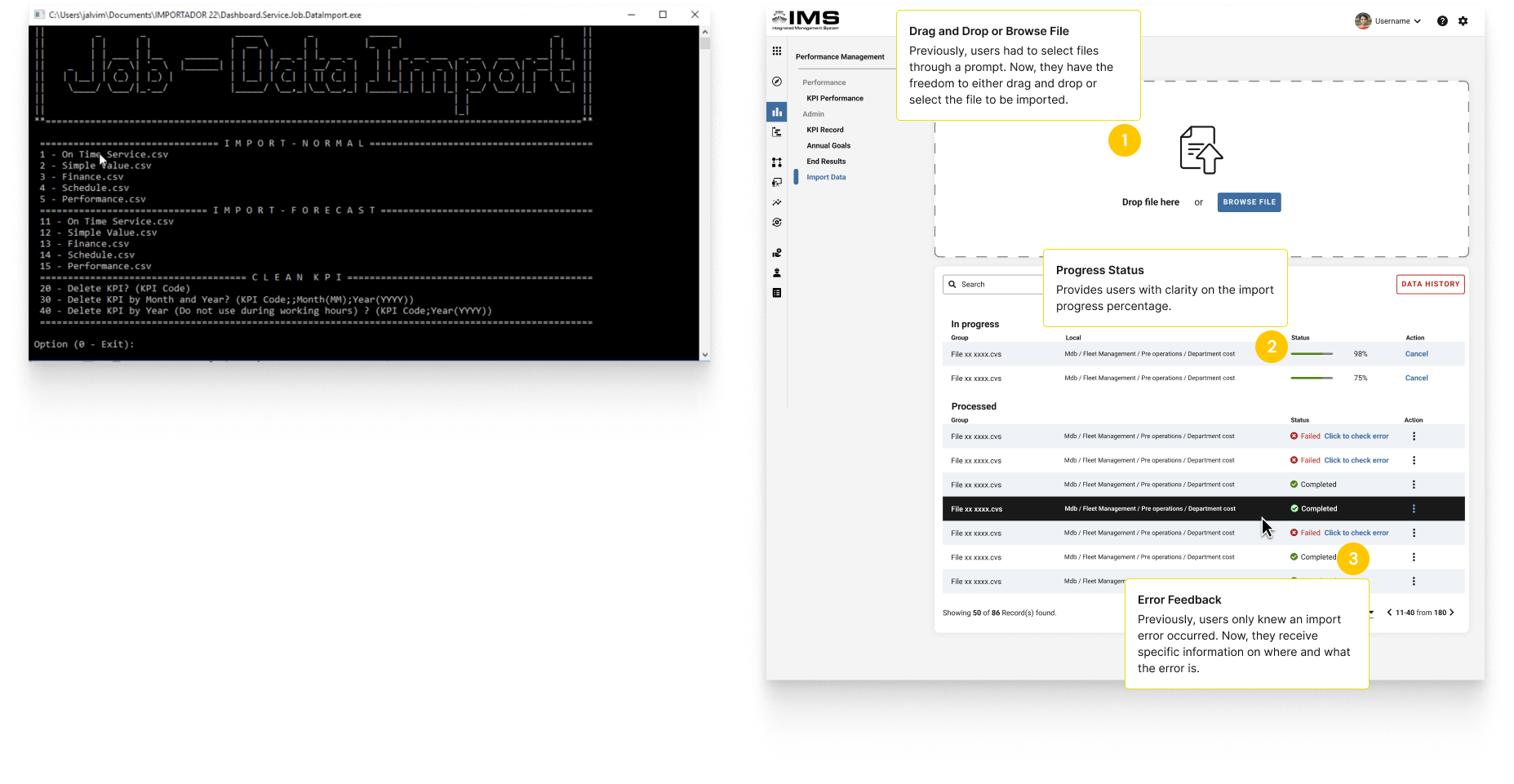
Dashboard
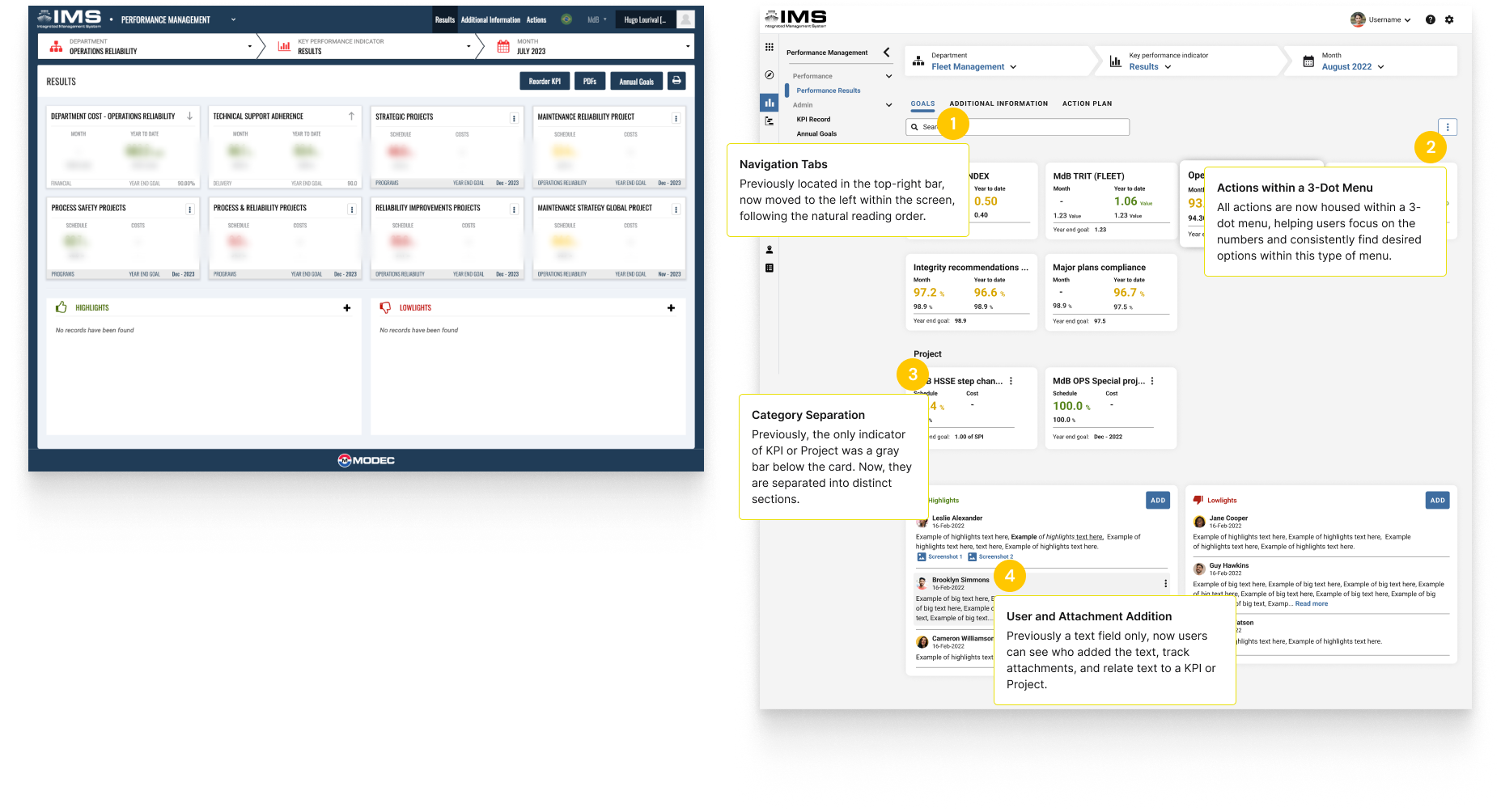
KPI Analysis
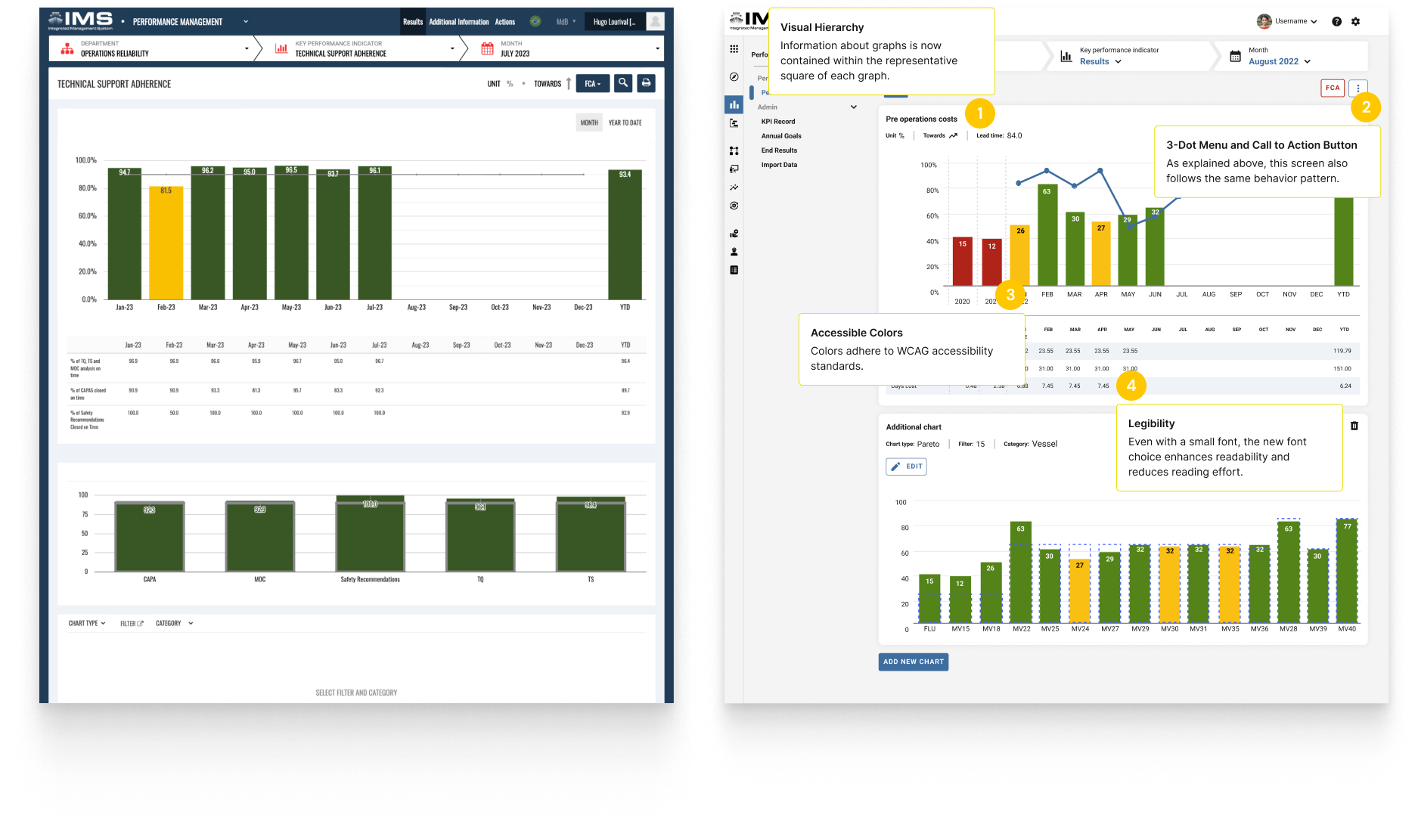
User flow
Login
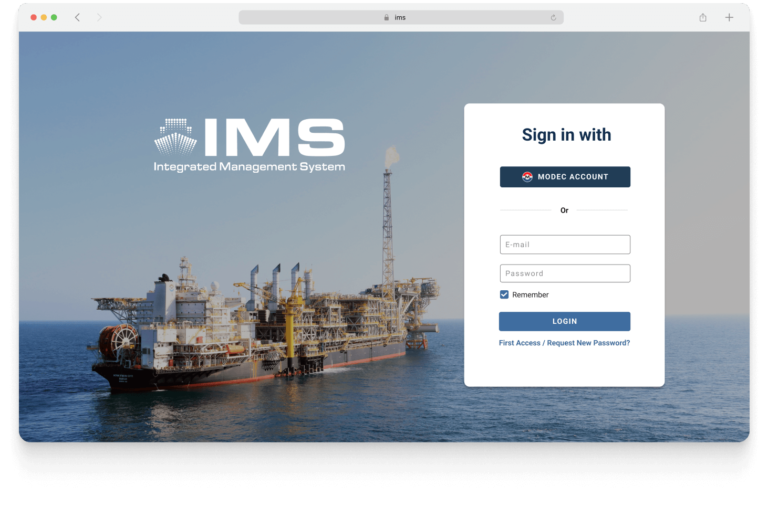
Register KPIs

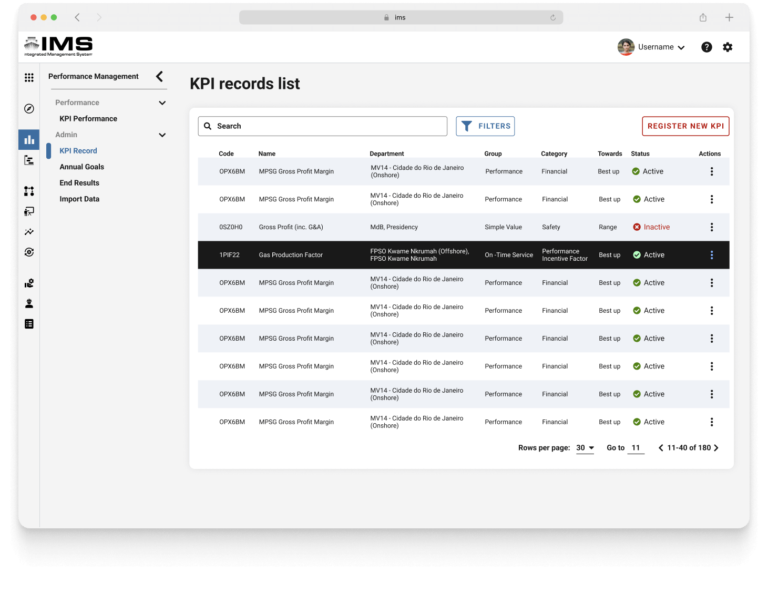
Import KPI Data
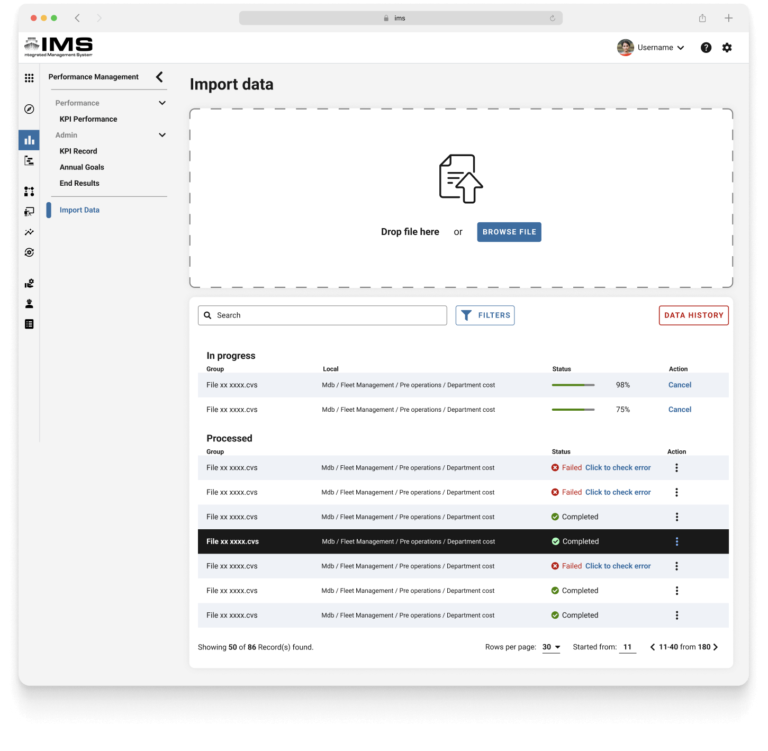
KPI Dashboard
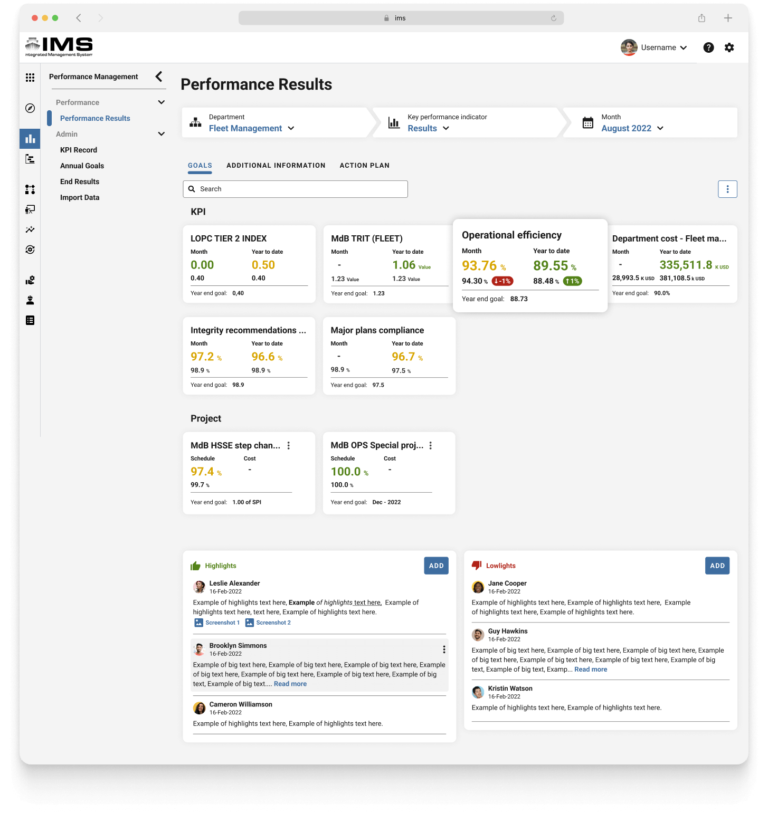
Analysis of KPI
